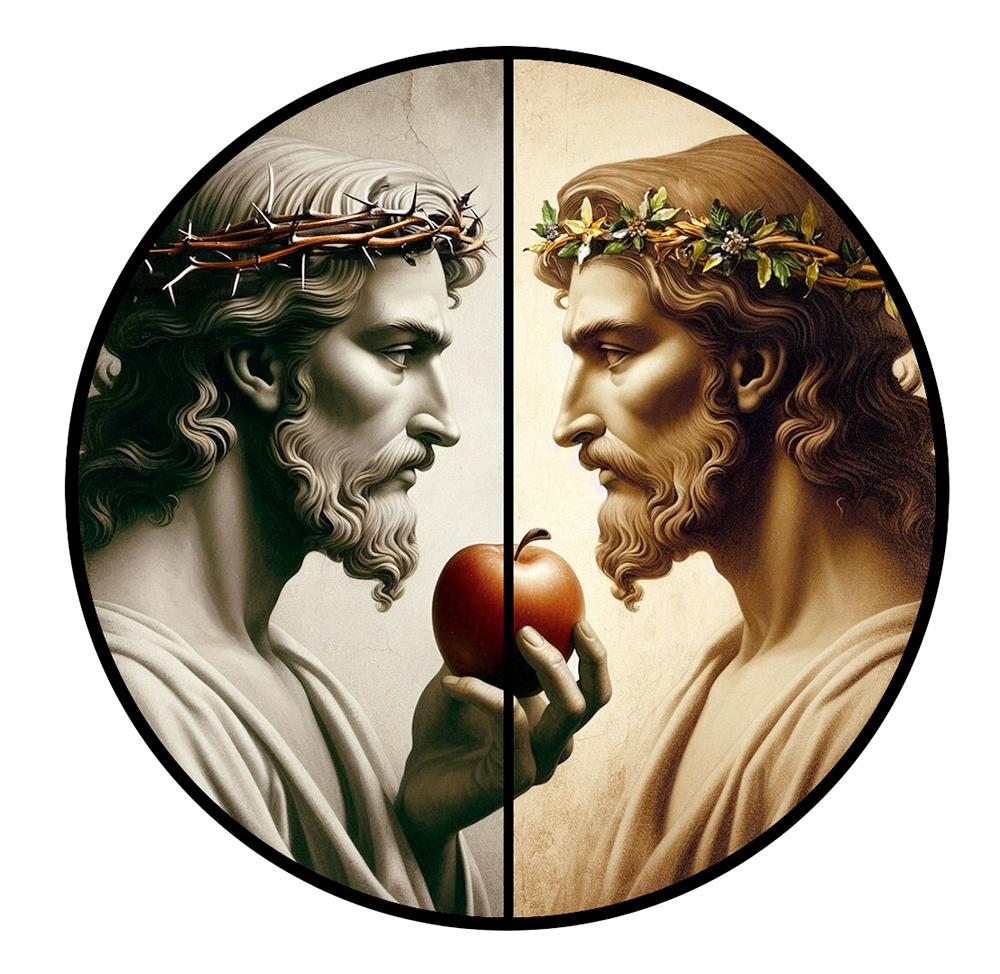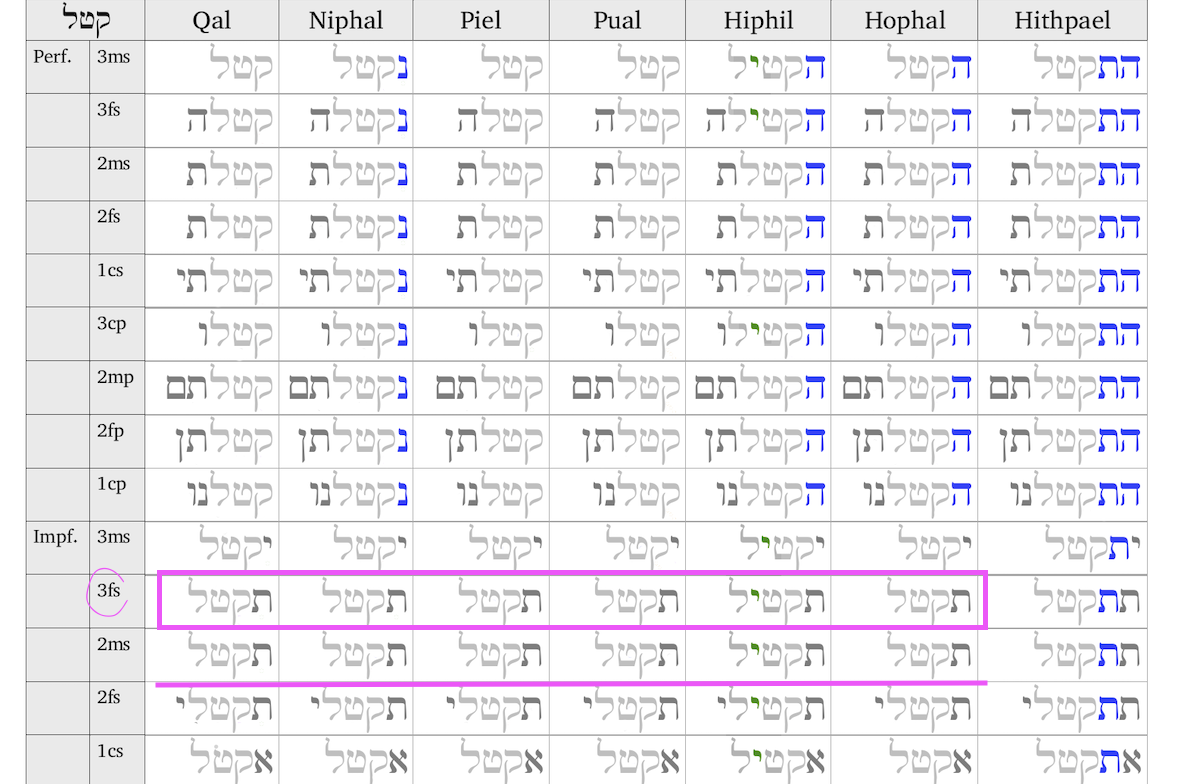 Genesis 2:17
Genesis 2:17

Manna of Himself
and also from the tree of the Knowledge of a good one. And the evil one you are not eating from out of the manna of himself, for within the Day he has eaten yourself from out of the manna of himself, he has died, you are dying!"
"For I have seen there is nothing good inhabiting within myself, that is, within the Flesh of myself..."
(Romans 7:18a RBT)
נחשתן Nechushtan (#5180)
נחשתא Nechushta "Copper Serpent" mother of He Is Stood Upright ("Jehoiakin") (#5179)
"Offspring of vipers! who showed to yourselves to flee away from the Wrath of her who is about to be?"
(Matthew 3:7 RBT)
"No way I'm eating that."
But from the tree to know good and evil thou shalt not eat from it, for in the day of thy eating from it, dying, thou shalt die.
but of the Tree of the Knowledge of Good and Evil you may not eat, for in the day that you eat of it, you shall surely die.
but of the tree of the knowledge of good and evil you shall not eat, for in the day that you eat of it you shall surely die.”
but of the tree of the knowledge of good and evil—of it ye shall not eat, but in whatsoever day ye eat of it, ye shall surely die.
Footnotes
| 87 | Strong’s #1847, daat. With definite article. Perceiving-one, knowing-one, knowledge, perception. Fem. noun. From yada (#3045) to perceive by sight. See note on Gen. 3:5 “They have ceased my people for you have rejected the Perceiving-one [daat], and I am rejecting you from ministering-as-a-priest to-myself. And you are forgetting the the torah of your elohe, I am forgetting your builders, also myself.” Hosea 4:6 literal |
| 88 | Manna of Self There is a lot of conjecture around the construct of the Hebrew ממנו mimenu (#4480). As a preposition this could be either masculine singular or plural. Or, it could be the noun מן manna (cf. Strong's #4478) as seen used with the pronominal suffix in places like Nehemiah 9:20 (מנך - your manna). explained as arising, by a reduplication of מִן, from an original מנמני, just as ממנוּ from him, from מנמנ-הו, identical in form with ממנוּ[6] from us, from מנמנ-נו Cf. Gesenius on Prepositions with Pronominal Suffixes/m. The -מִ preposition represents the idea of “a part taken out of a whole” according to Gesenius and Fuerst. Out of 1223 occurrences of the preposition, the compound word ממנו appears 171 times. The question then, is it translated "from ourselves" or "from himself" or "from his manna"? The same challenge happens with the masculine/feminine:
|
| 88a | Hebrew אכלך. "I am eating up yourself" or "he ate yourself." Intepreted traditionally as "your eating" and then interpreted further as signifying an "emphatic" or "intensive" clause. But אכל is a verb, and the suffix is not typical except in instances of "I am consuming you/he consumed you" ...lest I am consuming you [אכלך] on the Road/Way... (Exodus 33:3) ...and he is consuming yourself [ויאכלך], the self eternal Manna, which the fathers of yourself did not perceive....(Deuteronomy 8:3 RBT - in this verse the word was falsely translated as a Hiphil causative 'caused you to eat' which is spelled differently as יאכיל ) In Leviticus 25:37 it means food of yourself as a noun, ...you are not giving the food of yourself [אכלך] within a great number...
|
| 88b | Hebrew תמות is either 2nd person masculine singular or 3rd feminine singular of "to die." They are identical conjugations in the imperfect/incomplete form.
|
